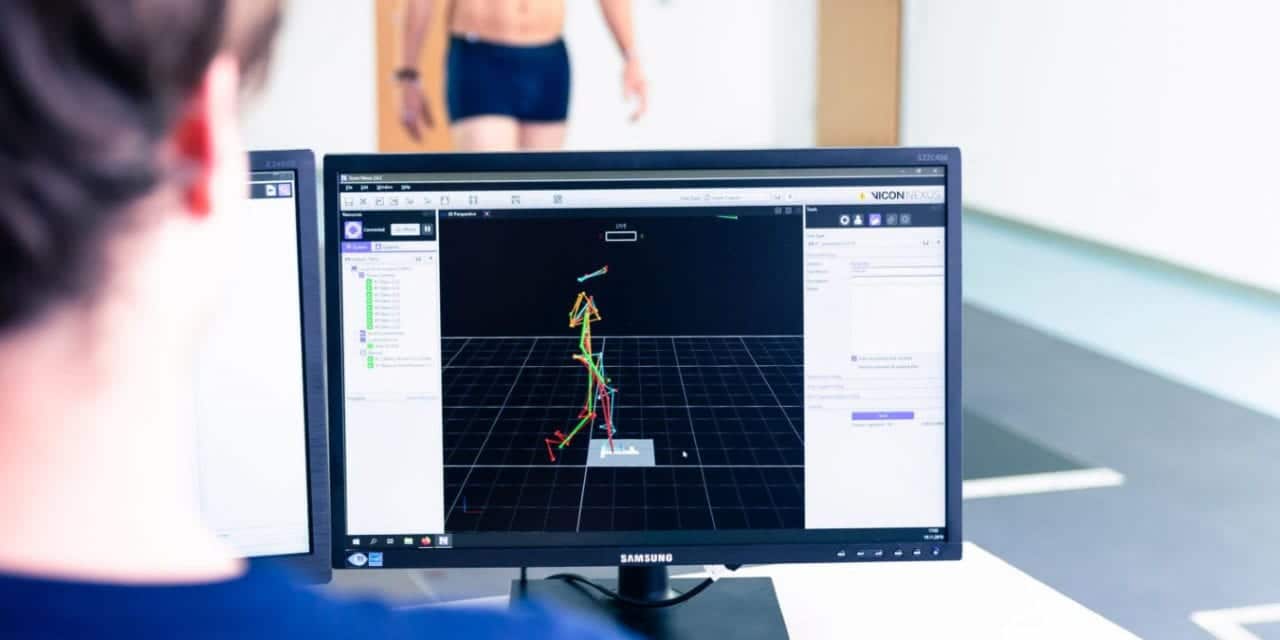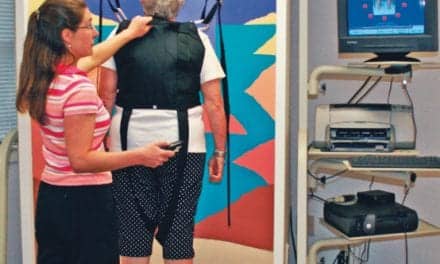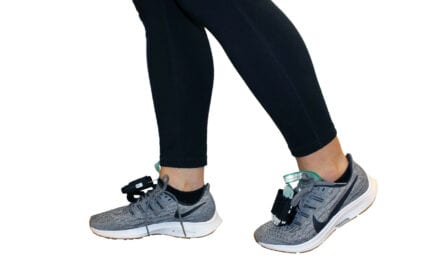(image courtesy of FH St. Pölten / Florian Kibler)
The St. Pölten UAS and the Austrian general accident insurance institution AUVA have made reportedly one of the biggest data records for automated gait analysis worldwide openly accessible, they announce.
The dataset and the accompanying description were published recently in Scientific Data. Researchers are free to use the data in order to improve automated gait analysis with the help of methods such as machine learning, a media release from St. Pölten University of Applied Sciences notes.
The database comprises information on the so-called “ground reaction force” (GRF), which is the force between the foot and the ground that is generated during movement. It is an important standard parameter used in clinical practice and in research. The figures form the basis for diagnosis and for the assessment of therapeutic success.
“Gait analysis provides a huge amount of data. Their interpretation is challenging, and there is a great deal of interest in supporting medical decision-making processes with machine learning methods. The more data we have, the better the results,” explains Brian Horsak, head of the research focus Motor Rehabilitation at the St. Pölten UAS, in the release.
Anonymized Data of More than 2,000 Patients
In order to facilitate research, therapy and diagnosis, Horsak and his colleagues at the St. Pölten UAS and the AUVA have published this data record worldwide on this topic in anonymized form. The data include anonymized information on more than 2,000 patients after joint transplantations, fractures and ligament injuries as well as associated impairments of the hips, knees, ankles and heel bones.
The GaitRec database come from several years of clinical gait analysis practice and can be used to improve analysis procedures and models.
“We have processed and published the data together with the AUVA. In times of the coronavirus, this dataset is even more interesting as many experts are unable to collect data in the lab and therefore have to rely on existing data records. Our dataset can be of assistance here, in terms of both teaching and research,” Djordje Slijepcevic, co-author of “GaitRec” and machine learning expert at the St. Pölten UAS, emphasizes, in the release.
[Source(s): St. Pölten University of Applied Sciences, EurekAlert]





